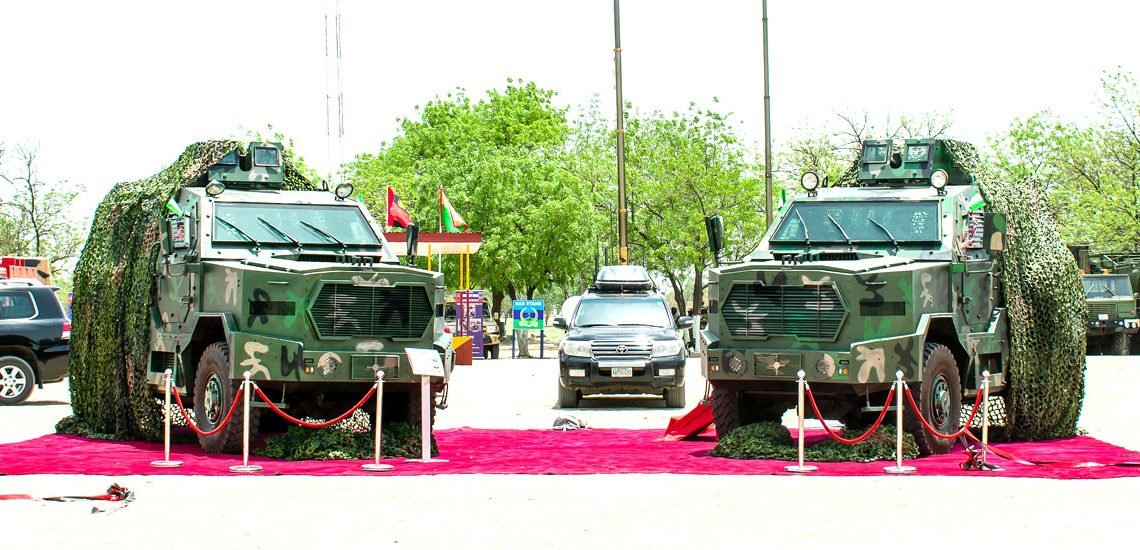Nigeria has unveiled locally manufactured mine-resistant and ambush-protected vehicles christened Ezugwu.
Other armored vehicles designed to carry out insertion and extraction of troops, assault, counter-terrorism, delivery of high firepower and urban warfare were also unveiled, The Premium Times reported.
President Muhammadu Buhari unveiled the vehicles Tuesday during an army conference.

“These armored vehicles that were produced by DICON are testimonies that the government’s effort is yielding positive results.
“It is encouraging to note that, the Nigerian Army as a critical element of National power is involved in innovative and inventive ventures to become an Army to be proud of in the future by all Nigerians.
“There is no doubt that a lot has been achieved by the Army since my assumption into office.
“Our administration has continued to provide resources for the execution of transformational projects with the aim of modernizing the Army to be better positioned to perform its constitutional roles,” the News Agency of Nigeria quoted Buhari as saying.

Acknowledging the collaborative efforts among various Nigerian institutions that had a role to play in manufacturing the vehicles, Buhari said: “In this regard, it is pertinent to acknowledge the establishment of the Army University, Biu, the Army Resource Center in the Army War College to further boost intellectual capacities in the forces.”

In a separate development, German car-maker Volkswagen (VW) unveiled its first electric cars in Sub-Saharan Africa in Rwanda.
The launch of the e-Golf was in partnership with German technology giant Siemens, making Rwanda the first Sub-Saharan African country where Volkswagen is testing electric cars.
The launch was the introduction of four e-Golf on the Rwandan market with one charging station at the Volkswagen facility at the Special Economic Zone.
More cars will join on the market in the coming months to bring the number to about 20 and 15 charging stations across Kigali, Rwanda’s capital reports The New Times.
The e-Golf will be manufactured and imported from Germany even though Volkswagen has a plant in Rwanda that assembles three models.
“We’ve been investing more than $30 billion into new electric vehicles and platforms and the entire world is moving in that direction,” VW’s Africa boss Thomas Schaefer said.
The plan for Africa is that ultimately, we replace the whole fleet into electric.”
The Chief Executive Officer of Volkswagen’s operations in Rwanda, Michaella Rugwizangoga, said the pilot project was part of the Volkwagen’s global ambitions of phasing out the combustion engines in the next decade as the firm seeks greener ambitions.
“The success of our innovative and pioneering mobility solutions business has shown us that Rwanda has the potential to leapfrog the internal combustion engines into electric cars. Rwanda has a young and progressive population that appreciates individual and modern mobility.
“Together with our development partner Siemens and with the support from the Government of Rwanda, Volkswagen wants to make the e-Golf pilot project in Rwanda a blueprint for electric mobility in Africa,” Schäfer said.










